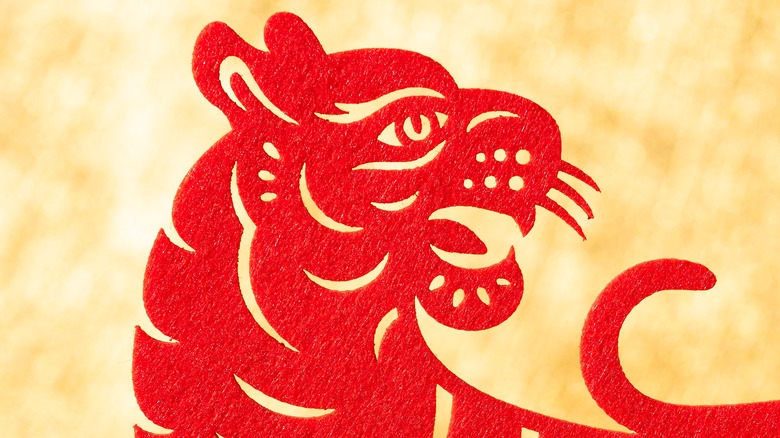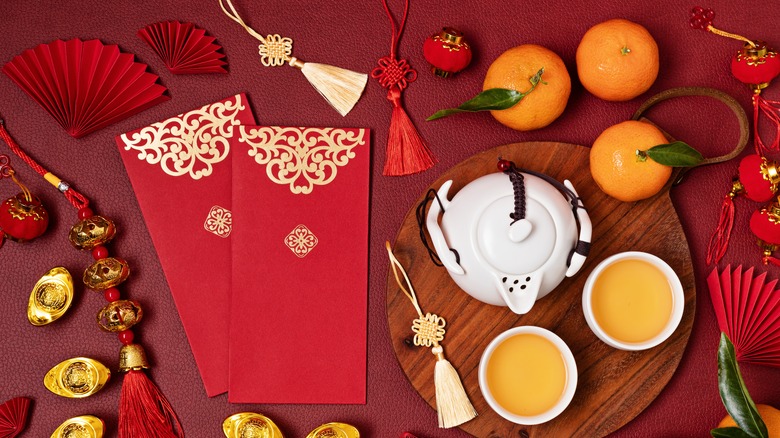What Does The Year Of Tiger Mean?
Goodbye Year of the Ox! In many (though not all) Asian countries, February 1, 2022, marks the beginning of weeks-long celebrations as the Lunar New Year has arrived. Although this date might seem arbitrary, USA Today reports that the Lunar New Year does not begin on the same day each year. Unlike the Gregorian Calendar, the Lunar New year is "based on the moon's 12 phases." As the Chinese zodiac "runs over a 12-year-cycle" that is represented by a different animal, 2022 is the Year of the Tiger (per DW). Anyone born in 1926, 1938, 1950, 1962, 1974, 1986, 1998, or 2010 is considered to be a tiger.
What does this mean exactly? According to CNET, those born under these years are considered "natural leaders" who love being in the spotlight. In many Asian cultures, tigers are seen as regal animals, representing fearlessness and strength. Like any other new year, the Lunar New year symbolizes renewal and a clean state. The Year of the Tiger, however, quite possibly embodies this notion even more than before.
How is Lunar New Year celebrated?
USA Today writes that because tigers are seen as powerful and courageous, they can provide people with hope and a sense of protection. This is especially true as the world enters into its second year of the COVID-19 pandemic. As 9News explains, the Year of the Tiger will perhaps be the year the pandemic ends once and for all. Or at the very least, its conclusion will be imminent. Despite the pandemic, nearly 2 billion people all over the world will be celebrating the Lunar New Year. In some Asian countries, it's the "equivalent of Thanksgiving or Christmas."
CNET reports that each culture has its own traditions. In some countries, like China, festivities can last up to two weeks. In South Korea, they can go on for three days. Nonetheless, many wear red for good luck and receive money from family in red envelopes. Feasts are arranged and parades and fireworks (or firecrackers) are a given. Per CNN, many clean their homes before the Lunar New Year begins to ward off bad luck. Even with the cultural differences, the consensus is the same: The Lunar New Year is a joyous time that should be spent with family to honor ancestors and begin anew.

